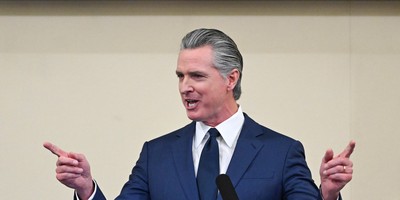WASHINGTON -- This week the fiscal crisis was momentarily interrupted for a public service announcement.
The Pew Research Center issued a report showing that the racial disparity in net worth -- the wealth gap in America -- is growing. People of every background saw their assets decline during the Great Recession, but the liquidation was faster among African-Americans and Hispanics.
This is hardly surprising. Lower-income groups have more of their wealth concentrated in homeownership; higher-income Americans are more diversified in their assets. The housing collapse took a disproportionate toll on minority wealth.
The trend is less shocking than the baseline. In 1984, the ratio between white and black wealth was about 12-to-1. Now, the median net worth of whites is about 20 times that of blacks. According to the most recent figures, about 15 percent of white households have zero or negative net worth. The percentage is 35 percent among African-Americans.
Current economic distress is compounding a long-term problem. The possession of assets provides a measure of security during an economic shock, allowing a family to weather a nasty bout of unemployment. In the absence of assets, unemployment can lead to dramatic downward mobility. And the consequences accelerate over time, since wealth is often used to purchase quality education for children, a source of upward mobility.
This kind of problem is the reason liberals were created. At its best, liberalism has been about something more than making a progressive tax code slightly more progressive. It brought equal opportunity to the forefront of American politics -- Robert Kennedy drawing attention to Appalachia, Sargent Shriver founding Head Start, Bill Clinton expanding the Earned Income Tax Credit. We can perhaps remember, said RFK, if only for a time, that those who live with us are our brothers; that they share with us the same short moment of life; that they seek, as do we, nothing but the chance to live out their lives in purpose and in happiness."
Recommended
Few liberals talk like that today, though the flame still flickers in places such as the Asset Building Program at the New America Foundation, where Ray Boshara has conducted his long campaign to address the wealth gap. This challenge does not lack for proposed responses, including subsidies for savings, the promotion of financial education and increased access to financial services.
Conservatives, however, also have a contribution to make in addressing the wealth disparity, intended or not. They are the only ones currently calling attention to a massive structural problem that will make serious social policy nearly impossible in the future.
The trajectory of American debt, by nearly universal admission, is unsustainable. But the cause is not generally admitted on the left. As Yuval Levin points out, our future debt problem is all about health care entitlements. And I mean all. In the Congressional Budget Office's projections, health care costs account for basically 100 percent of our exploding debt in the coming decades.
In about 40 years, health care entitlements -- Medicare, Medicaid, SCHIP and Obamacare -- will overtake spending on everything else in the budget, including Social Security, defense and domestic discretionary spending. The federal government, says Levin, will basically be a health insurer with some unusual side ventures like an army and a navy.
One consequence would be to rule out any broad innovation on domestic policy. To make room for unreformed entitlement commitments, discretionary spending would be so squeezed that even existing programs on education, hunger, poverty and homelessness would be tough to maintain.
For proof, the current budget debate will suffice. Republicans oppose new taxes. Democrats oppose serious entitlement reform. Apparently the only thing on which they can agree is further reductions in discretionary spending, which have already taken the brunt of cuts in the recent past.
More libertarian-leaning Republicans may find this a welcome development -- though it only briefly postpones a deficit reckoning. For Democrats, the matter is more complex. Health entitlements are great liberal achievements, and preserving them is an effective political appeal. But maintaining these past achievements in their current form may preclude the possibility of significant future achievements in the promotion of equal opportunity. An ideology that merely protects the past is not recognizably progressive.
In normal times, a worsening social problem like the wealth gap might unite creative liberals and compassionate conservatives in an unlikely policy alliance. Meetings would take place at the New America Foundation. Bipartisan legislation would be introduced.
It is a Washington I can remember -- but now seems impossibly distant.

























Join the conversation as a VIP Member